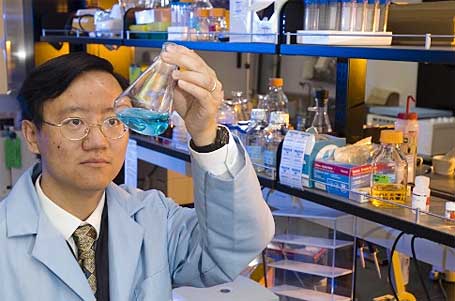
Percival Zhang and his team of Virginia Tech researchers have come up with a method to create massive amounts of hydrogen using plants. This hydrogen from biofuel method uses the second most abundant plant sugar xylose along with a customized enzyme and polyphosphate to create pure hydrogen.
According to Virginia Tech, “To liberate the hydrogen, Virginia Tech scientists separated a number of enzymes from their native microorganisms to create a customized enzyme cocktail that does not occur in nature. The enzymes, when combined with xylose and a polyphosphate, liberate the unprecedentedly high volume of hydrogen from xylose, resulting in the production of about three times as much hydrogen as other hydrogen-producing microorganisms.
“The energy stored in xylose splits water molecules, yielding high-purity hydrogen that can be directly utilized by proton-exchange membrane fuel cells. Even more appealing, this reaction occurs at low temperatures, generating hydrogen energy that is greater than the chemical energy stored in xylose and the polyphosphate. This results in an energy efficiency of more than 100 percent — a net energy gain. That means that low-temperature waste heat can be used to produce high-quality chemical energy hydrogen for the first time. Other processes that convert sugar into biofuels such as ethanol and butanol always have energy efficiencies of less than 100 percent, resulting in an energy penalty.”
So, this is a low cost, renewable way to produce abundant hydrogen with a net energy gain using plants. I want to give a special shout out to Lyle Tuttle for emailing me this article.